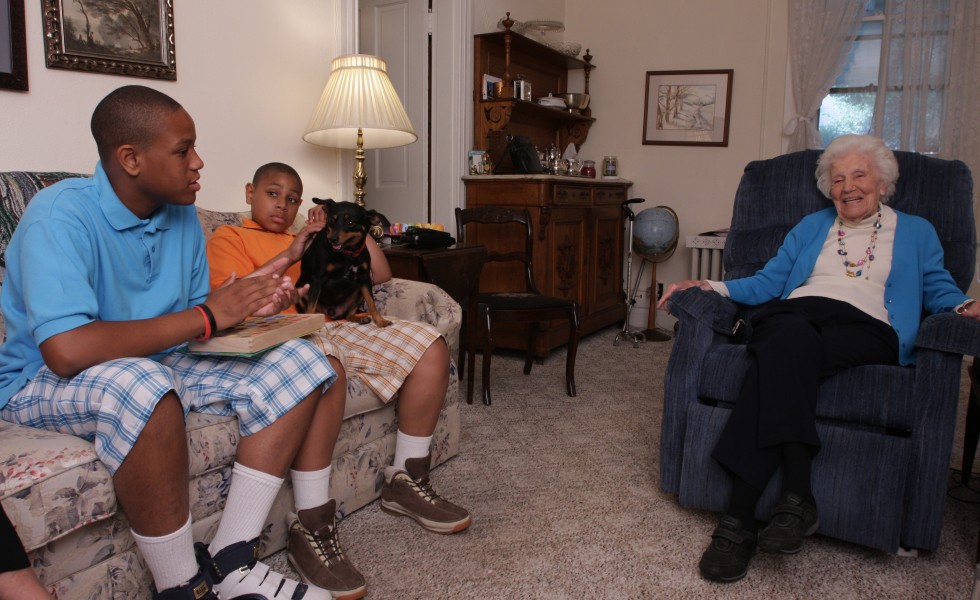Housing

Two significant barriers to adequate senior housing in the District are the limited amount of affordable housing and the lack of sufficient accessible housing.
In the last 10 years, the median rent for a one-bedroom apartment has risen by 50 percent beyond inflation, from $735 in 2000 to $1,100 in 2010. Overall, DC has lost more than half of its low-cost rental units and 72 percent of its low-value homes. The lack of affordable housing in the District, which seniors rely on disproportionately, is staggering. While this is not unique to our city, it is a major policy issue that the City Council must address to provide safe, affordable, supportive housing so that DC residents can age in place. Senior housing must be addressed also as a platform for the successful delivery of services to our frailest seniors – a strategy that can minimize the need for costly institutionalization that seniors do not want and the District cannot afford.
From 2008 through 2014, 77 individuals transitioned under the District’s Money Follows the Person (MFP) demonstration. According the MFP staff the largest barrier to moving citizens out of institutional settings is the lack of affordable housing to serve those with the lowest incomes. There are many people ready to move, who cannot. Of the 30 dedicated vouchers to assist with housing costs through MFP, many cannot be used in areas of the city with high rental costs. It is critical to have careful monitoring of the administration of all vouchers, including the ones that were included in the 2014 and 2015 budgets. Lengthy delays in implementation have been the norm.
Nationally, nursing home care averages about $75,190 per patient each year. Care in the home, through such services as meals-on-wheels and daily visits by a health aide, averages $18,000 a year, according to the AARP Public Policy Institute. At So Others Might Eat (SOME), supportive services for 60 homebound clients cost an average of $3,700 per person a year. The cost of providing support to 60 homebound clients is only $200,000 compared to roughly $4.5 million for nursing home care.
DC has lost more than half of its low-cost rental units and 72 percent of its low-value homes over the last decade. In the next five years, according to the National Housing Trust, the District will face 54 affordable communities coming to the end of their federal contracts and putting 5,042 units at risk for opting out of these contracts and going market rate. The seniors thus displaced will likely fall into housing and care options that are likely to more expensive to the public, from homelessness and hospitalization to skilled nursing.
Furthermore, housing accessibility and supportive housing programs are measures essential to enabling District residents of all income levels to age-in-place. Seniors and persons with disabilities prefer to remain in their own homes or at least a community setting. Potentially useful programs for home modification for purposes of accessibility are housed in D.C. agencies. One of these, the EPD Waiver Environmental Accessibility Adaptation program, is administered through the DC Health Care Finance Department. The other is under DHCD’s Single Family Residential Rehabilitation Program: the Handicapped Accessibility Improvement Program. It appears that while funds are available through these programs, regulatory and administrative issues prevent citizens from knowing about and/or accessing them.
Goals and Objectives
Goal: SAC seeks to assure appropriate, affordable housing for D.C. seniors, especially those who have limited financial resource and/or functional capacity. Our objectives emphasize seniors’ preference for home settings rather than institutional residences.
Objectives:
- In the FY16 budget, increase funding levels by a minimum of $100 million for the DHCD Housing Production Trust Fund, a minimum of $2 million for the tenant-based Local Rent Supplement Program, and a minimum of $1million to the Housing First program to facilitate transition to supportive senior housing.
- Ensure approval and implementation by the appropriate agencies of the recommendations of the Task Force for Single Family Residential and Rehabilitation Program (SFRRP) and Handicapped Accessibility Improvement Program (HAIP); especially those recommendations that can achieve:
- Eliminating the requirement for renters in the Elderly and Persons with Disabilities Waiver (EPD,), the Developmental Disabilities Waiver (DD) and Money Follows the Person (MFP) programs to be deemed ineligible for funding by these programs before Medicaid will cover the expense.
- Simplifying and expediting the application process for programs that provide funding for the elderly and disabled to make modifications to their home and better educate the public about the availability of these funds
- Increased capacity for DCOA to assist seniors with housing challenges through:
- Links with housing counseling agencies and those providing support for low-income home owners on foreclosure prevention, reverse mortgages, home equity loan products and DC programs for rehab and accessibility.
- Housing resource training for all DCOA and ADRC staff members who are involved in information and referral functions.
 Senior Advisory Coalition
Senior Advisory Coalition
Recent Comments